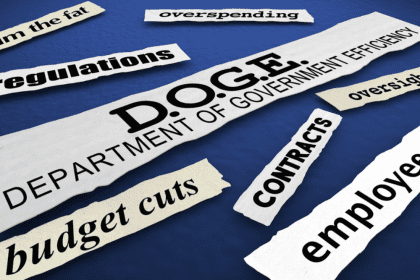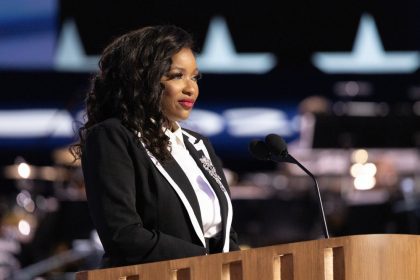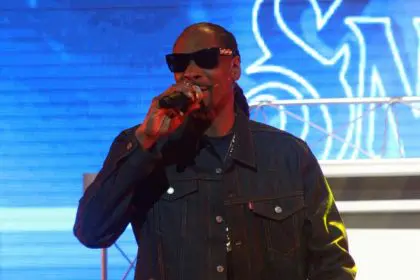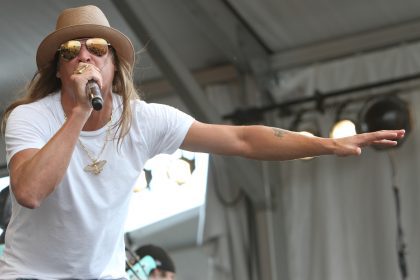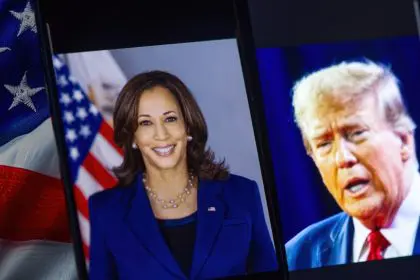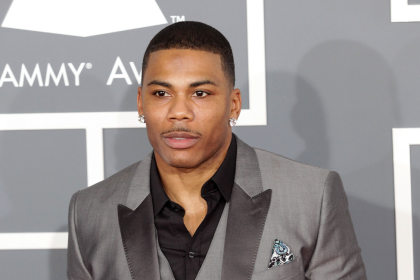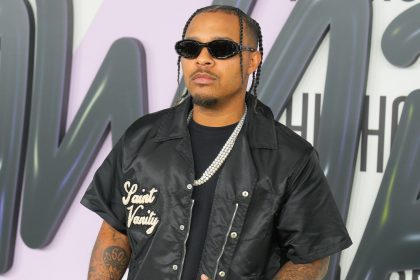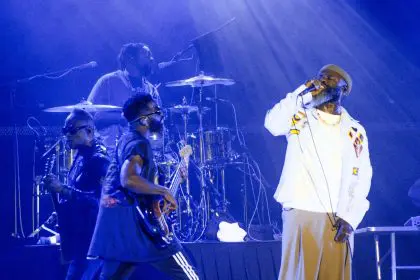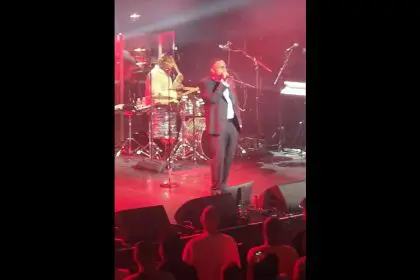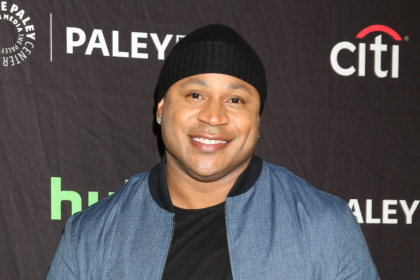 Rap artist Che Rhymefest Smith, who has successfully expanded his brand as a concerned father and a serious political candidate, participated in the TBTNEwsService panel, “Can Social Media Create Social Change?” during the ongoing Social Media Week in Chicago.
Rap artist Che Rhymefest Smith, who has successfully expanded his brand as a concerned father and a serious political candidate, participated in the TBTNEwsService panel, “Can Social Media Create Social Change?” during the ongoing Social Media Week in Chicago.
Rolling out deputy editor Zondra Hughes and live blogger Marcie Hill were also panelists; hip-hop entrepreneur Carl West and branding strategist Lauren McCadney moderated the panel.
During the event, Rhymefest told of his behind-the-scenes struggle with the mainstream media during his promising campaign for 20th Ward alderman — a campaign that was ultimately cut short when Mayor Rahm Emanuel backed the incumbent. “I was going against a police sergeant, a lawyer with an MBA, and a minister, it was like a bad joke,” Rhymefest chuckled. “Nobody took our campaign serious.”
Rhymefest says politics is the ticket to making change, and he encourages others to do so.
“My thought in running [for 20th Ward alderman], is that hip-hop started locally, started in a park with two speakers and a deejay, I felt as though we had to popularize locality, we had to popularize revolution. What better way to do that than to come back home, get embedded in the community and show young people that you can be more than just a rapper? You can rap; but you can [also] be a politician.
“I met this guy who practices law down the block. His rap name is Cap D., his real name is David Kelly; he’s a family attorney. He practices law by day and he raps at night. Cornel West, came to support our campaign, he is a professor but he really raps.”
Mainstream media, on the other hand, expected, and wanted buffoonery from Rhymefest, he argues.
“Media thought that because I was a rapper, that I was stupid,” he says. “They thought that because I was a rapper, I was going to be inarticulate, unintelligent, not have any ideas, not understand the issues, and fall on my face — and they wanted the cameras there to catch it.”
Rhymefest added that in general, the media puts the ills of poor folks on display. “A lot of times, the cameras are there to catch the unfortunate [elements] of our community and it kind of makes a case against us. The trick to it was that I wasn’t what they thought rappers were; I wasn’t what they thought hip-hop was.”
Social media, touring, and tapping cross-cultural markets at the grassroots level on the other hand, are vital strategies for conscious hip-hop performers and politicians who want to get the word out; this is especially true as mainstream media tend to ignore such artists, Rhymefest explained.
Rhymefest said that buffoonery gets the most airplay on many radio stations.
“[The raps] In the mainstream media are usually a pro-violence message, a womanizing, drugs, clubs, 98 percent of all raps we hear on the radio have a reference to alcohol, drugs, or material — being what wealth and value is. I think that from the message that major media promoted, they thought that’s what they were getting in this case, not realizing what Chicago rappers are; Chicago is on the forefront of socially conscious hip-hop. If you look at Lupe, Kanye, Common and Rhymefest, Chicago is the social conscience of the hip-hop brand movement,” he said.
Rhymefest says social change requires a unified, diversified group in order to come to fruition.
“I’ll show you how to organize on the streets, and then you keep me connected social network-wise, and then, when we cross-train inner-generationally, that’s when it can happen,” he beamed.
“Now we have to get an agenda and issue that we agree on.”
To learn more about Social Media Week, visit www.socialmediaweek.org.
Che Rhymefest Smith is on Twitter: @RhymeFest.

